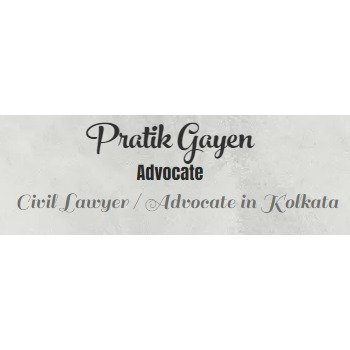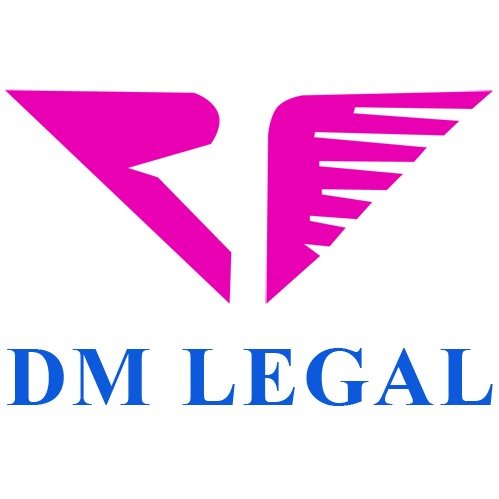Best Conveyancing Lawyers in Kolkata
Share your needs with us, get contacted by law firms.
Free. Takes 2 min.
Free Guide to Hiring a Real Estate Lawyer
List of the best lawyers in Kolkata, India
About Conveyancing Law in Kolkata, India
Conveyancing refers to the legal process of transferring property ownership from one person to another. In Kolkata, India, this process is governed by various national and state laws, involving the preparation, verification, signing, and registration of documents necessary to transfer property rights. Property transactions in Kolkata can involve various types of real estate, such as land, apartments, houses, or commercial spaces. The process ensures that the buyer receives clear and undisputed title to the property, free from encumbrances, and that all legal formalities are properly fulfilled.
Why You May Need a Lawyer
Engaging a qualified lawyer during the conveyancing process is highly advisable due to the complexities and legal requirements involved. Common situations where legal help is essential include:
- Drafting or reviewing sale deeds, lease deeds, and transfer agreements to avoid future disputes
- Performing due diligence to verify property title and ensure it is free from legal encumbrances
- Managing property-related taxes and stamp duty calculations
- Facilitating property mutation and updating municipal records
- Handling disputes concerning inherited properties or ownership claims
- Resolving complications related to co-ownership or jointly held property
- Complying with local regulations and documentation requirements
- Protecting your rights in case of fraudulent or misrepresented transactions
Seeking legal guidance helps safeguard your investment and provides recourse in case you encounter unforeseen legal issues during or after the property transaction.
Local Laws Overview
Conveyancing in Kolkata is primarily governed by several central and state-level statutes. Key aspects include:
- Transfer of Property Act, 1882 - Lays down the procedural and substantive law for property transfers in India
- Registration Act, 1908 - Mandates registration of legal instruments affecting property, such as sale or lease deeds, at the relevant Sub-Registrar office
- Indian Stamp Act, 1899, as amended by West Bengal - Governs the payment of stamp duty on property transactions, with rates set by the state government
- West Bengal Land Reforms Act, 1955 - Regulates agricultural and ceiling land holdings, tenancies, and transfers in West Bengal
- Kolkata Municipal Corporation Act - Deals with mutation of property records and local taxes
Additionally, property transfers may attract Goods and Services Tax (GST) in certain cases and require compliance with urban development regulations. Mutation, or updating municipal records in the new owner's name, is a crucial step often handled after registration. Buyers and sellers must ensure that all arrears of property tax or utility bills are cleared at the time of transfer.
Frequently Asked Questions
What is the first step in purchasing property in Kolkata?
The first step is conducting due diligence to verify ownership and ensure the property is free from legal issues, such as encumbrances or ongoing litigation. This is typically handled by a lawyer.
Is property registration mandatory in Kolkata?
Yes, under the Registration Act, it is mandatory to register all instruments that transfer property rights. Only after registration does the buyer become the legal owner of the property.
Who calculates and pays the stamp duty in Kolkata?
Typically, the buyer is responsible for paying stamp duty, which is calculated as a percentage of the property value or consideration as per government rates. The rate varies based on type and location of the property.
What documents are required for property registration?
Common documents include sale deed, previous ownership documents (title deed), government-approved ID proof, PAN card, property tax receipts, and proof of payment of stamp duty. The complete list may vary by transaction.
How long does the property registration process take?
If all documents are in order, registration can typically be completed in one or two days at the local Sub-Registrar’s office. However, other processes like mutation may take additional time.
What is mutation and why is it important?
Mutation is the process of updating the municipal records to reflect the new owner after a property transaction. It is important for property tax assessment and to establish property ownership in municipal records.
Are there restrictions on who can buy property in Kolkata?
Indian citizens can generally buy property in Kolkata. However, there are restrictions for non-resident Indians (NRIs) and foreign nationals. Agricultural land transactions are particularly regulated under state law.
Can I buy property jointly with another person?
Yes, joint ownership is common and allowed. It is important to clearly document the share of each co-owner and understand the implications for future sale or inheritance.
What should I do if I suspect the property documents are forged?
Immediately consult a lawyer for a detailed verification. If forgery is confirmed, you can file a police complaint and seek legal remedies in court.
Do I need a lawyer to buy or sell property in Kolkata?
While it might not be legally compulsory, it is strongly recommended to engage a lawyer for drafting, verification, and registration to protect your rights and avoid legal complications.
Additional Resources
Here are some helpful resources and organizations for conveyancing in Kolkata:
- Kolkata Municipal Corporation for mutation and property tax queries
- West Bengal Registration and Stamp Revenue Department for property registration
- Local Bar Associations or legal aid societies for lawyer referrals
- Consumer Helpline for resolving property-related grievances
- Registrar of Assurances, Kolkata (Sub-Registrar offices)
Consulting these bodies can provide guidance on current procedures, fee structures, and clarify document requirements.
Next Steps
If you need legal assistance with conveyancing in Kolkata, start by gathering all available documents related to the property. Make a list of questions or concerns you have about the transaction. Research and contact an experienced lawyer specializing in property law, preferably with knowledge of local conveyancing practices. Initial consultations can help you understand the process, estimate costs, and outline your rights and obligations. Where needed, visit the relevant governmental offices or online portals to familiarize yourself with documentation and fee requirements. Engaging professional assistance early in the process can prevent potential disputes, save time, and ensure a smooth transfer of property ownership.
Lawzana helps you find the best lawyers and law firms in Kolkata through a curated and pre-screened list of qualified legal professionals. Our platform offers rankings and detailed profiles of attorneys and law firms, allowing you to compare based on practice areas, including Conveyancing, experience, and client feedback.
Each profile includes a description of the firm's areas of practice, client reviews, team members and partners, year of establishment, spoken languages, office locations, contact information, social media presence, and any published articles or resources. Most firms on our platform speak English and are experienced in both local and international legal matters.
Get a quote from top-rated law firms in Kolkata, India — quickly, securely, and without unnecessary hassle.
Disclaimer:
The information provided on this page is for general informational purposes only and does not constitute legal advice. While we strive to ensure the accuracy and relevance of the content, legal information may change over time, and interpretations of the law can vary. You should always consult with a qualified legal professional for advice specific to your situation.
We disclaim all liability for actions taken or not taken based on the content of this page. If you believe any information is incorrect or outdated, please contact us, and we will review and update it where appropriate.
















